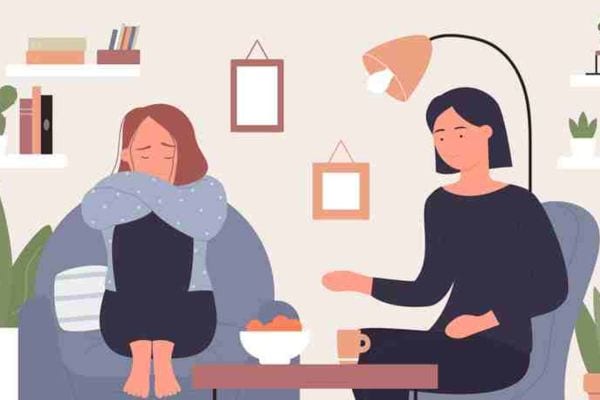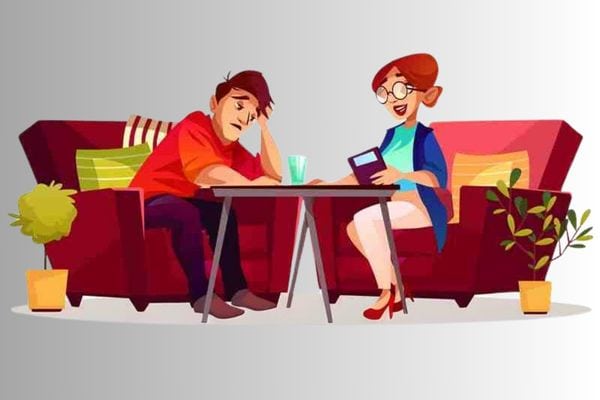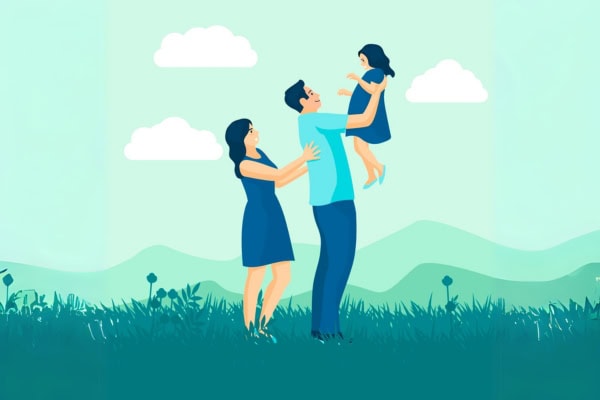“Tears fall for a reason, and they are your strength, not weakness.” — Charlie Mackesy
Sadness is inevitably one of the natural and basic emotions in every human being. It is a universal emotion that we feel when we experience pain or loss, such as grieving the loss of our loved ones, the loss of a lifetime opportunity, or a sour relationship.
However, we tend to avoid sadness, intentionally or unintentionally. We often hear people tell us “Hey, don’t be sad.” “Hey, cheer up. You will be fine.” “Don’t cry!” “Can you stop crying?” We are taught not to feel sad or express sadness from a very young age, and it seems to tell us a hidden message that sadness is not acceptable.
Hence, the environment that one is exposed to will determine how one copes with sadness. Cultures that see sadness as an acceptable emotion and promote dialogue, help people accept sadness and to move forward easier. Thus, to overcome sadness and make progress in life, acceptance is the first stage of it all. Though it might be hard at first, with support from family, friends, or counsellors, it is possible to deal with sadness in a more constructive manner.
How Accepting Sadness Can Help You?
The greatest benefit of accepting sadness means you are accepting yourself and the vulnerability that you are facing. While it is hard to do at times, it is crucial to our overall well-being that we are not only accepting sadness but embracing it as a natural part of life.
No one is perfect and strong forever, hence accepting that you need a break, you are weak at times, will give you space for self-care and to rest. This space will help you to be more aware of your needs and also help you to recognize the negativity that you attach to yourself and the events, such as, if you hold on to the sad feeling about an experience that you had, then you are going to build more layers of sadness in your life.
When you learn to accept sadness and you start looking at things in a different light, you will be able to have a happier life. This will help you develop a strong character generally in life too. By focusing on the fact that you are going through this sadness and you can cope with it, this will reinforce our self-esteem, making us emotionally stronger.
How Sadness Helps To Build Relationships?
In accepting sadness, it is said that we would be able to see the glass half full rather than half empty. Although sadness is such a universal part of our existence, sometimes it is hard for us to cope with it alone. Thus, it is understandable why some people find themselves in other people’s arms.
During sad moments, we lean into family and friends for strength and support. We tend to connect intimately with them to extreme levels than we would have at any other time. This connection helps to cement the relationships.
How Does Counselling Help People With Sadness?
Tony White (1986) states that a healthy expression of sadness is when one is able to accept sadness, and to ask for comfort and reassurance from others. Hence, one needs to seek from people who are able to provide good quality help when asked. To be kind and caring to yourself when you are sad is certainly a healthy act. However, by making yourself to look after yourself means you are only getting half of the care because you need to use one half of yourself to look after the other half of yourself. Therefore, to get a total expression of sadness, one needs someone else to look after you in order for you to be totally looking after.
When looking for a Counsellor or Psychotherapist, one of the first question that may arise is how does counseling help people with sadness? It is important to understand that when dealing with depression and feelings of sadness, it is important to find a support group that is able to empathize with your situation and is capable of giving you the type of support you need to get on with your life.
Counselors can offer their patients a wide range of different services depending on what they wish to achieve. Some people prefer psychotherapy while others may require counseling and perhaps both. Counselors will be able to draw upon a variety of different resources when helping people deal with difficult emotions. Understanding how counselling helps people with sadness can go a long way towards giving you the ability to get on with your life.
Final Thoughts
Sadness can be tough to deal with. Though people may vary on their level of acceptance, making quick adjustments and moving on with life is important. Setting aside cultural differences and standing by each other during sad times is essential. Not only does it promote unity, but it also plays a key role in ensuring humanity is spread across.
We need family and friends to cheer and strengthen us during such times. Counsellors also come in handy when the situation at hand needs professional intervention. With their experience in the field, they will gradually help us through the acceptance process.
White, T. (1986). Creative feeling: How to understand and deal with your child’s feelings!
Australia: T.A. Books.












